The MP700 Pro SE has joined Corsair’s existing range of MP700 Gen5 drives, offering unrivalled speeds aimed at enthusiast-level PC builds. However, the MP700 Pro SE is one of a few PCI-E 5.0 SSDs without an integrated heatsink, raising concerns about thermal performance. That’s why we’ve decided to test the MP700 Pro SE in a rigorous set of benchmarks to determine if Corsair has resolved the Gen5 SSD temperature issue and to see what performance is available.
The Corsair MP700 Pro SE has already entered a competitive market, with most major storage manufacturers offering Gen5 options that cater to those who need insane storage speeds. This particular MP700 Pro variant is particularly interesting for a few reasons, with the unique quality being the lack of an integrated heatsink or cooler to keep a lid on thermals. In this review, we’ll assess these qualities, along with the specs, design, and performance, to see if the MP700 Pro SE is worth picking up compared to the competition.
Buy the Corsair MP700 Pro SE on:
Specification
Taking a look at the specs, the Corsair MP700 Pro SE offers sequential read and write speeds of 14000MB/s and 12000MB/s, respectively. These speeds place it at the top of the market on performance alone, with its only competition being the Crucial T705, which offers 14500MB/s and 12700MB/s on the reads and writes. Regardless, this is pretty impressive to see, as within about a year, Gen5 SSDs have just about doubled the bandwidth limits of Gen4 drives, where performance teeters around 7000MB/s and 6000MB/s across read and writing capabilities.
Regarding capacity, the MP700 Pro SE has launched with a 4TB capacity for the non-heatsink model. Meanwhile, the Hydro X series variant has a 2TB version with a much lower price point. Although the Hydro X series drive isn’t the focus of this review, it is worth noting that read and write speeds are the same across both versions of the MP700 Pro SE drive.
| Specification | Corsair MP700 Pro SE |
|---|---|
| PCI-E Generation | Gen5 |
| Capacity | 2TB (Hydro X) 4TB |
| Sequential Read Speed | 14000MB/s |
| Sequential Write Speed | 12000MB/s |
| Warranty | 5 years |
| Endurance | 3000TBW |
| Form Factor | M.2 2280 |
The lack of smaller capacity versions on the non-heatsink MP700 Pro SE is disappointing. While I understand that the target market is aimed at enthusiasts who need a considerable amount of high-speed storage, the $579.99 MSRP is not a small amount to spend on any component, let alone a singular storage drive. Despite this, I don’t think the price point of this drive is entirely unreasonable compared to market alternatives, with the 4TB Crucial T705 sitting at $543.99 at the time of writing.
The MP700 Pro SE 4TB offers an endurance rating of 3000TBW (terabytes written), which is relatively standard for a drive of this size but still solid nonetheless. Corsair also provides a five-year warranty with this drive, which is a common offering for most of its components.
Suggested Article: Best SSDs to Buy in 2024
Corsair MP700 Pro SE Design
Unfortunately, the MP700 Pro SE isn’t exciting on the design front. Because this drive doesn’t come with a heatsink, fan, or any RGB, there’s not much to talk about in terms of the aesthetic or look. The MP700 Pro SE comes in a 2280 form factor, which is normal for most desktop NVMe drives released within the past few years.

A small label sits on top of the drive to help heat transfer, as there’s no integrated heatsink to shift heat around passively. Otherwise, the MP700 Pro SE is a relatively plain-looking drive. I feel this SSD would benefit from some RGB lighting, making this drive rather unique compared to the vast number of similar-looking drives on the market.
It’s worth highlighting that while this drive doesn’t have an integrated heatsink or fan, Corsair advises on its website that the MP700 Pro SE is to be used with an integrated heatsink on your motherboard to remain cool. This means general performance and thermals will vary for those with motherboards that don’t have an included heatsink mounted to the board.

While I can’t imagine most prospective buyers will pick up this drive to pair alongside a budget board, this is still a distinct design weakness that will impact performance if left unchecked.
Will Gen5 SSDs Become Cheaper?
One thing we often see when new technologies or components are released is buyer’s remorse. This is the feeling of regret or reluctance after purchasing something, typically associated with spending a large amount of money on something, followed by that item not being what you expected or the fact that there were subsequent price drops shortly after purchase.
With Gen5 SSDs, I feel we’re in that state currently. It’s been about a year or so since the first PCI-E 5.0 drives hit the market, and while the later renditions of these drives are impressive, they are not accessible for everyone to purchase. With the vast majority of 1TB Gen5 SSDs sitting over $150, this is a pretty expensive purchase for effectively just speedy storage.

But does this mean that Gen5 SSDs will always be wildly expensive? No. Much like we’ve seen with Gen4 pricing, Gen5 SSDs are likely to see a downturn in cost once manufacturers have started to reach the bandwidth cap on these drives, and by this point, Gen6 SSDs will be a topic of conversation.
At the same time, I don’t think it’s worth holding out for these price drops right now. If we use Gen4 SSDs as a benchmark, it took about three years or so for the prices to normalise and become affordable, so we could be waiting a similar amount of time for PCI-E 5.0 NVMe drives to be in the same place.
Thermals
To assess the thermal capability of the MP700 Pro SE, we ran CrystalDiskMark with HWMonitor in the background to keep an eye on temperatures. CrystalDiskMark applies an artificial load on the drive by transferring files and then provides a speed measurement afterwards. Doing this lets us see the drive’s temperatures under a sustained workload.
From our benchmark, temperatures teetered around the 52-degree mark during 100% utilisation, dropping to around 40 degrees or so at 50% activity. These thermals were impressive overall, and we expected temperatures to be much higher because of the lack of a heatsink. This shows that Corsair may have solved the Gen5 thermal problem, allowing prospective buyers to use a motherboard heatsink and making installation more straightforward.

Performance
To find out what speeds the MP700 Pro SE offers, we fired up CrystalDiskMark, a staple application that features across all of our SSD testing. This benchmark provides us with sequential read and write speeds measured in ‘MB/s’ (megabytes per second), indicating how the MP700 Pro SE will perform in games and general day-to-day usage.
Looking at the performance of the MP700 Pro SE, this SSD easily surpassed its rated read speeds of 14000MB/s with a final result of 14076MB/s. On the write speeds, CrystalDiskMark reported around 34MB/s under the rated speeds of 12000MB/s. This is well within the 10% margin of error we give for results, so I’d argue that Corsair’s advertised speeds look pretty accurate.

When we compare the MP700 Pro SE to other SSDs that we’ve tested, this drive stands out versus the competition. In performance alone, the MP700 Pro SE beats out every other Gen5 drive we have, including the MSI Spatium M570 Pro FROZR, which has an absolutely gargantuan heatsink to keep it cool. Enthusiasts who need a high-performance drive can rest easy knowing the MP700 Pro SE is one of the fastest SSDs on the market.

Conclusion
Corsair MP700 Pro SE

Product Name: MP700 Pro SE
Brand: Corsair
-
Design
-
Thermals
-
Performance
-
Value for Money
Summary
The Corsair MP700 Pro SE is one of the fastest drives we’ve tested since the launch of Gen5 SSDs, topping the charts with read speeds of 14000MB/s and write speeds of 12000MB/s. Across our benchmarking, this drive offered solid thermal performance under sustained workloads and maintained its high speeds without throttling to manage temperatures further. If we’re looking at performance alone, the Corsair MP700 Pro SE is one of the best Gen5 SSDs on the market right now and is a worthwhile consideration for a top-end PC build.
Much like the vast majority of other Gen5 SSDs we’ve reviewed, the price point of the MP700 Pro SE is the major caveat to consider when picking up this drive. With a $579.99 MSRP, this is no small amount of money to spend just on storage, and we understand that this is likely to be a point of contention for most builders. Additionally, the non-heatsink version of this drive only comes in a 4TB capacity, so if you don’t need 4TB of extra space but do need the high speeds, picking up this SSD is a hard pill to swallow. This being said those willing to contend with the larger capacity will not be disappointed with the performance of the MP700 Pro SE.
Pros
✅ Exceptional speeds
✅ Solid thermals
✅ No ugly heatsink
Cons
❌ Insanely expensive
❌ Only comes in 4TB
❌ Boring design


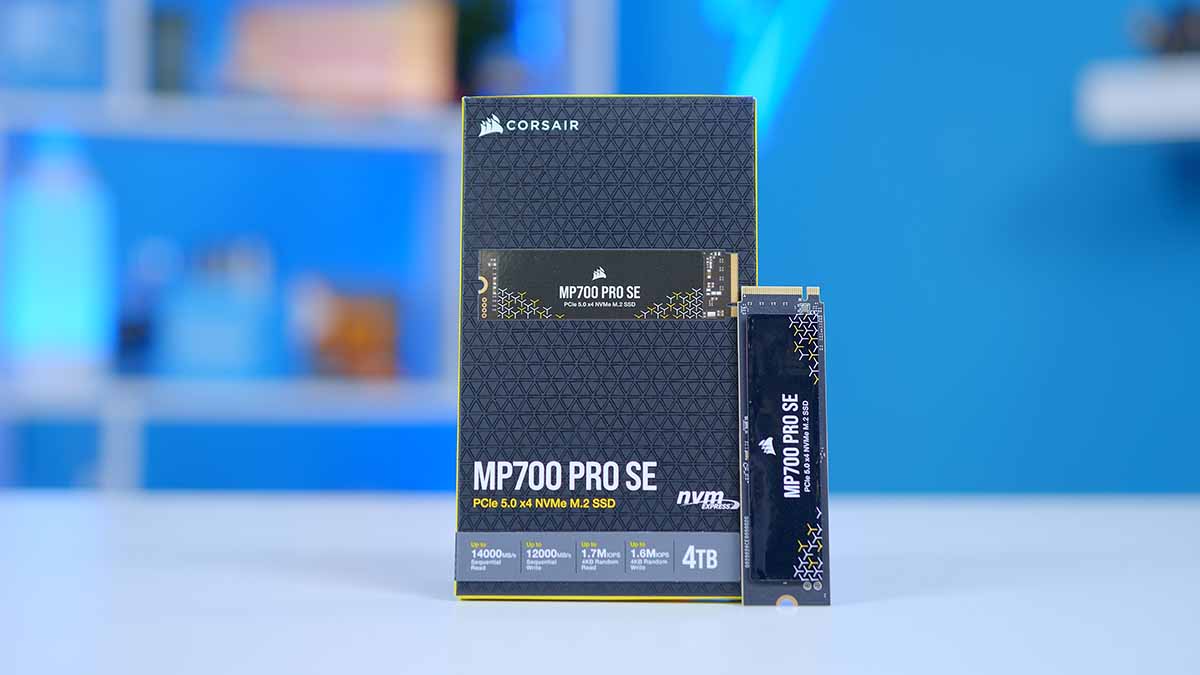
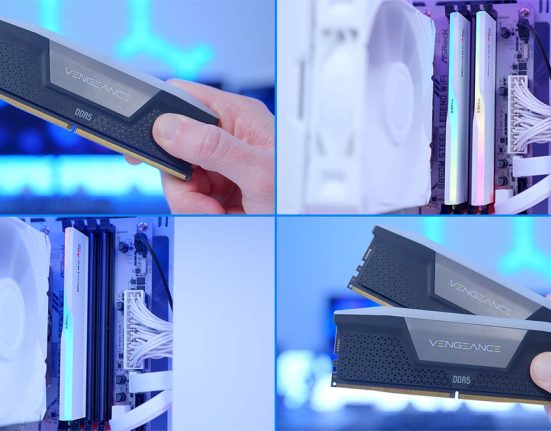
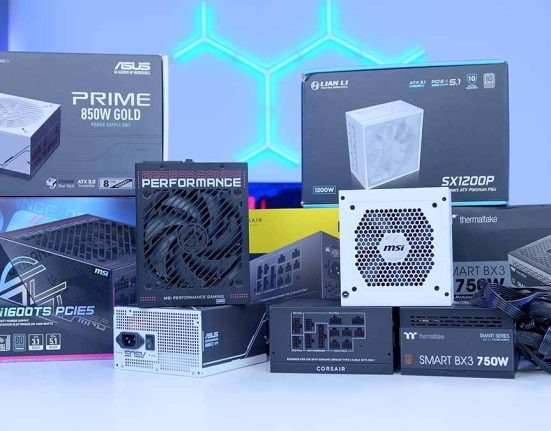
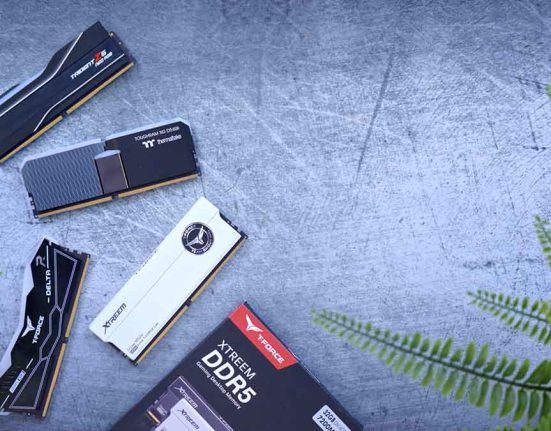
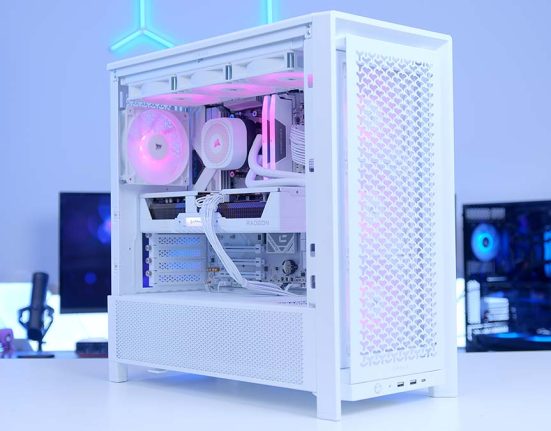
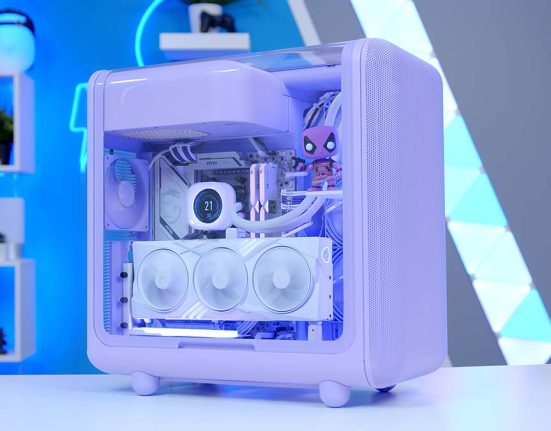
![FI_[DM87] HAVN BF & RTX 5090 Build](https://geekawhat.com/wp-content/uploads/2026/01/FI_DM87-HAVN-BF-RTX-5090-Build-551x431.jpg)